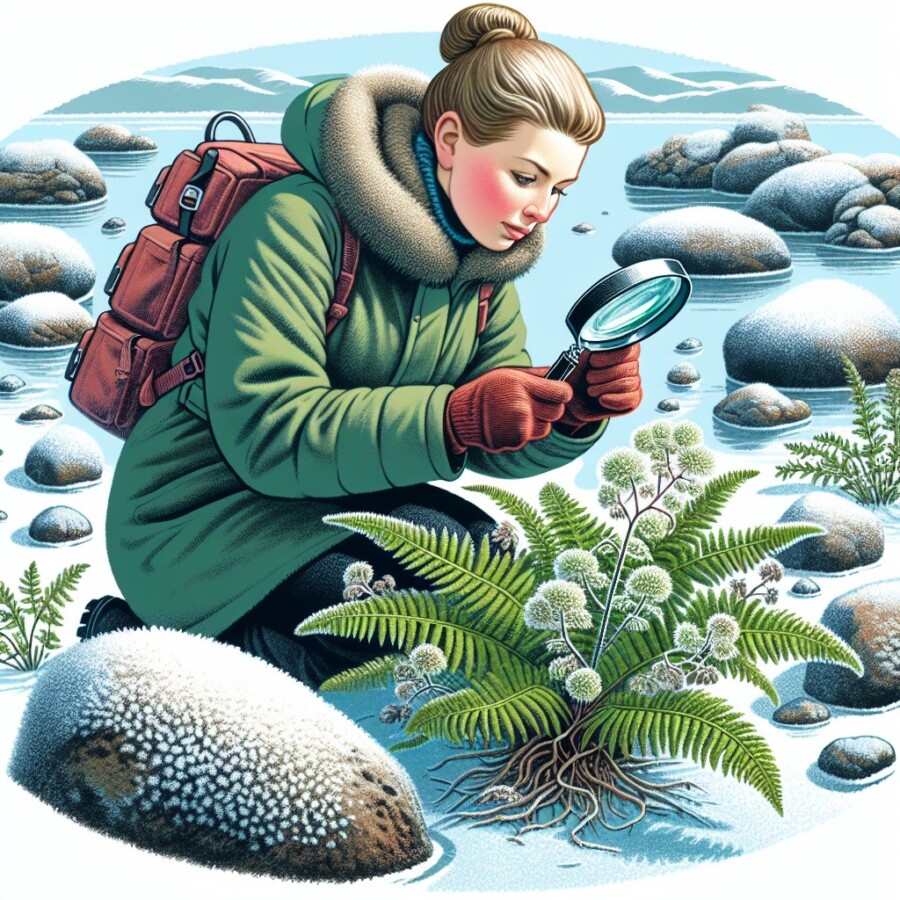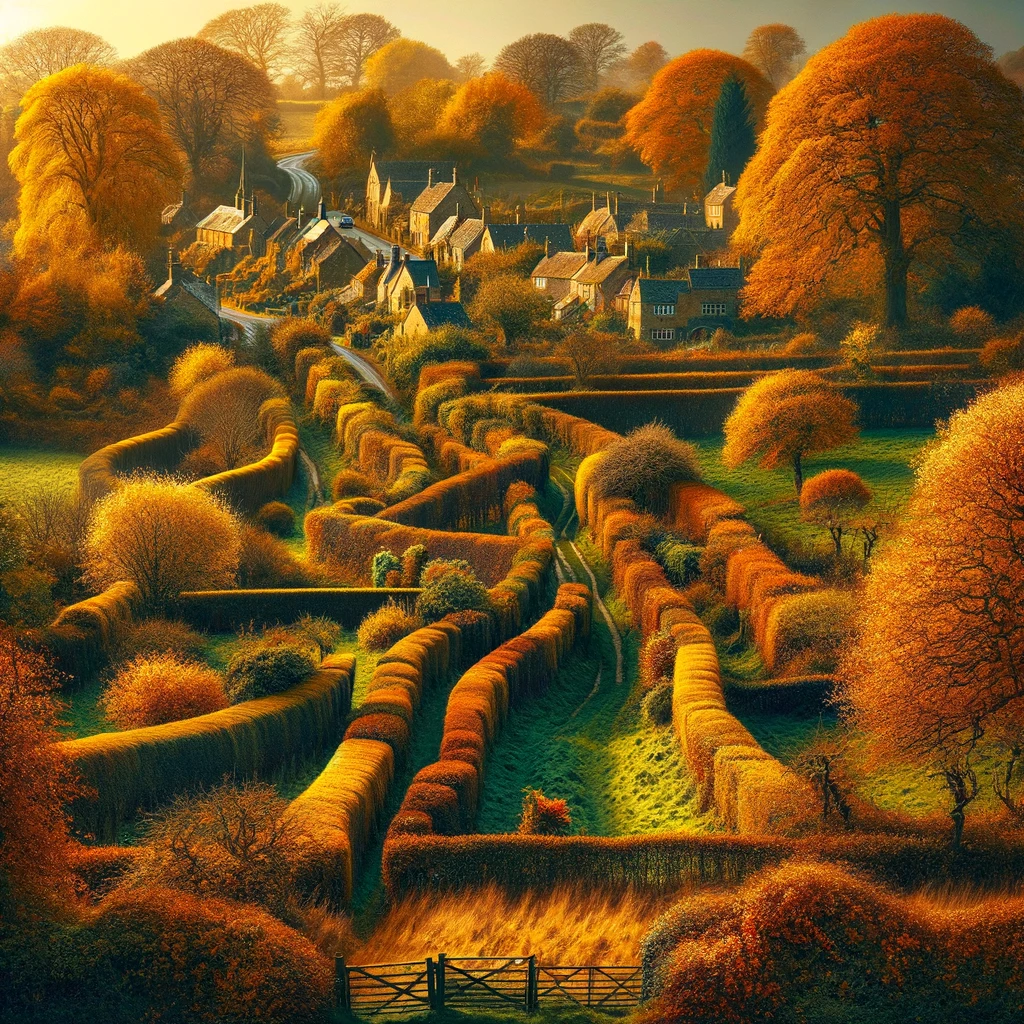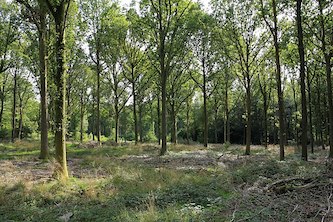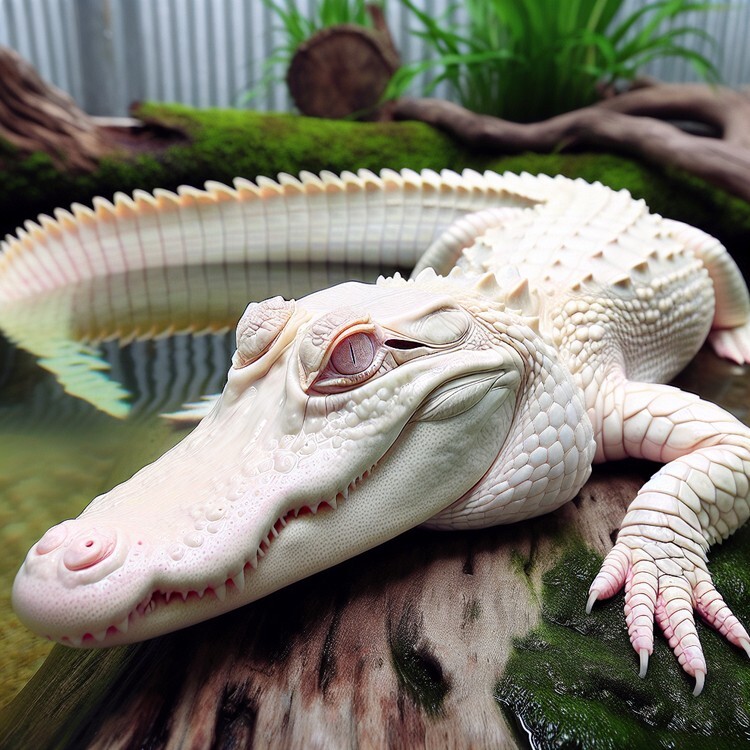Rosemary Parslow, a nature enthusiast, spent Christmas on the Isles of Scilly in search of a rare fern that blooms in the winter. While most people were celebrating with family and friends, Rosemary was crawling on the frozen ground, dedicated to discovering this endangered plant. Her trips to find the fern have puzzled her three children, who thought she was “totally barking.” However, Rosemary is determined to share her knowledge with the next generation of conservationists and has spent decades mapping rare and precious flora on the islands.
The Isles of Scilly, located off the coast of Cornwall, are home to over 100 islands, most of which are uninhabited. These islands have a unique natural history, hosting rare wildflowers, globally important seabirds, and unusual sea creatures. Rosemary first visited the islands in 1958 and fell in love with them. She eventually discovered the rare fern, called the least adder’s-tongue fern, growing on a small patch of heath land. This plant grows to only 2cm tall and has leaves the size of a human fingernail. It gets its name from the snake-tongue-like central spike that appears in winter and produces spores.
While searching for another rare plant, Rosemary had a near-death experience when she almost drowned. Jumping from a rubber dinghy onto the rocks of a remote island, she fell overboard. Thankfully, she managed to swim to a boat and continue her studies for the rest of the day. Rosemary has faced setbacks throughout her career, including having to resign from her job at the Natural History Museum when she got married and started a family. However, she continued her work in natural history, illustrating books and writing about the natural history of the archipelago.
Now 87 years old and officially retired, Rosemary continues to map the coasts and heaths of the islands. She has witnessed the decline of many plants, particularly those found on the shore, due to climate change. She fears that some plants may have gone extinct, such as the shore dock. This year, she also observed the arrival of transparent jellyfish and rare sea squirts, which are indicators of the changing climate. Despite these challenges, Rosemary’s dedication to nature has been recognized with a “nature hero” medal from the Wildlife Trusts.
Rosemary’s legacy will be carried on by her three children, who share her love for the Isles of Scilly. Her youngest daughter, Helen, has even become an archaeologist. Rosemary recently visited St Agnes, where the fern still grows, and was able to show others its location and relate it to the maps she had made in the past. She hopes that someone else will continue monitoring the fern in the future.
Original news source: The woman who spent Christmas in search of a rare plant (BBC)
🎧 Listen:
Slow
Normal
Fast
📖 Vocabulary:
| 1 | enthusiast | A person who is very interested and enthusiastic about a particular activity |
| 2 | endangered | At risk of no longer existing |
| 3 | conservationists | Individuals who work to protect the environment and preserve natural resources |
| 4 | uninhabited | Not occupied by humans |
| 5 | wildflowers | Flowering plants that grow in the wild without cultivation |
| 6 | seabirds | Birds that live near the sea and often feed on fish |
| 7 | spores | Reproductive cells capable of developing into a new individual without fusion with another cell |
| 8 | setbacks | Problems or obstacles that hinder progress |
| 9 | archipelago | A group of islands |
| 10 | extinct | No longer in existence |
| 11 | jellyfish | Aquatic creatures with a soft, gelatinous body and no bones |
| 12 | squirts | Small marine animals with a tube-like structure |
| 13 | dedication | The quality of being committed to a task or purpose |
| 14 | archaeologist | A professional who studies human history and prehistory through the excavation of sites and the analysis of artifacts and other physical remains |
| 15 | monitoring | The process of observing and checking the progress or quality of something over a period of time |
Group or Classroom Activities
Warm-up Activities:
– News Summary
Instructions:
1. Divide the class into pairs or small groups.
2. Give each group a copy of the article or read it aloud.
3. Instruct the groups to summarize the article in their own words, focusing on the main points and key details.
4. After a designated amount of time, have each group share their summary with the class.
– Opinion Poll
Instructions:
1. Divide the class into pairs or small groups.
2. Provide each group with a list of discussion questions related to the article.
3. Instruct the groups to discuss the questions and record their opinions.
4. After the discussion, have each group present their opinions to the class and facilitate a class-wide discussion.
– Vocabulary Pictionary
Instructions:
1. Write a list of vocabulary words from the article on the board.
2. Divide the class into pairs or small groups.
3. Instruct each group to choose one word from the list and draw a picture to represent it.
4. The groups should then take turns presenting their pictures to the class, while the rest of the class tries to guess the corresponding word.
– Pros and Cons
Instructions:
1. Divide the class into pairs or small groups.
2. Instruct each group to create a list of pros and cons related to Rosemary’s dedication to finding the rare fern.
3. After a designated amount of time, have each group share their lists with the class and facilitate a class-wide discussion about the pros and cons of Rosemary’s actions.
– Future Predictions
Instructions:
1. Instruct the class to imagine they are future conservationists studying the flora and fauna on the Isles of Scilly.
2. Divide the class into pairs or small groups.
3. Instruct each group to discuss and make predictions about the future of the rare fern and other plant species on the islands.
4. After the discussion, have each group present their predictions to the class and facilitate a class-wide discussion about the future of conservation on the Isles of Scilly.
🤔 Comprehension Questions:
1. Why did Rosemary Parslow spend Christmas on the Isles of Scilly?
2. How did Rosemary’s children feel about her trips to find the rare fern?
3. What makes the Isles of Scilly’s natural history unique?
4. How did Rosemary first discover the rare fern?
5. What happened to Rosemary when she was searching for another rare plant?
6. What setbacks did Rosemary face in her career?
7. What concerns does Rosemary have about the decline of plants due to climate change?
8. How is Rosemary’s legacy being carried on by her children?
Go to answers ⇩
🎧✍️ Listen and Fill in the Gaps:
Rosemary Parslow, a nature enthusiast, spent Christmas on the Isles of (1)______ in search of a rare fern that blooms in the winter. While most people were celebrating with family and friends, Rosemary was (2)______ on the frozen ground, dedicated to discovering this endangered plant. Her (3)______ to find the fern have puzzled her three children, who thought she was “totally barking.” However, Rosemary is determined to share her (4)______ with the next generation of conservationists and has spent decades mapping rare and precious flora on the islands.
The Isles of Scilly, located off the coast of Cornwall, are home to over 100 islands, most of which are uninhabited. These islands have a (5)______ natural history, hosting rare wildflowers, globally important seabirds, and unusual sea creatures. Rosemary first visited the islands in 1958 and fell in love with them. She eventually discovered the rare fern, called the least adder’s-tongue fern, growing on a small patch of heath land. This plant grows to only 2cm tall and has leaves the size of a human fingernail. It gets its name from the snake-tongue-like central spike that appears in winter and produces (6)______.
While searching for another rare plant, Rosemary had a near-death (7)______ when she almost drowned. (8)______ from a rubber dinghy onto the rocks of a remote island, she fell overboard. Thankfully, she managed to swim to a boat and continue her studies for the rest of the day. (9)______ has (10)______ setbacks throughout her career, including having to resign from her job at the Natural History Museum when she got married and started a family. However, she continued her work in natural history, illustrating books and writing about the natural history of the archipelago.
Now 87 (11)______ old and officially (12)______, Rosemary continues to map the coasts and heaths of the islands. She has witnessed the decline of many plants, particularly those found on the shore, due to climate change. She fears that some plants may have gone extinct, such as the shore dock. This year, she also observed the arrival of transparent jellyfish and rare sea squirts, which are (13)______ of the changing climate. Despite these (14)______, Rosemary’s (15)______ to nature has been recognized with a “nature hero” medal from the Wildlife Trusts.
Rosemary’s legacy will be carried on by her three children, who share her love for the Isles of Scilly. Her youngest daughter, Helen, has even become an archaeologist. Rosemary recently visited St Agnes, where the fern still grows, and was able to show others its location and (16)______ it to the maps she had made in the past. She hopes that someone else will continue monitoring the fern in the future.
Go to answers ⇩
💬 Discussion Questions:
Students can ask a partner these questions, or discuss them as a group.
1. What is a nature enthusiast? Why do you think Rosemary is described as one?
2. How would you feel if you spent Christmas crawling on frozen ground in search of a rare plant?
3. Do you think it’s important to share knowledge about conservation with the next generation? Why or why not?
4. What do you think makes the Isles of Scilly unique in terms of natural history?
5. How do you think Rosemary felt when she first discovered the rare fern on the islands?
6. Do you think it’s worth risking your life for your passion? Why or why not?
7. Why do you think Rosemary continued her work in natural history even after facing setbacks in her career?
8. How do you think Rosemary feels about the decline of many plants due to climate change?
9. Do you think it’s important to recognize and honor individuals like Rosemary who dedicate their lives to nature? Why or why not?
10. How do you think Rosemary’s children feel about their mother’s dedication to the Isles of Scilly?
11. What do you think it means for Rosemary’s legacy to be carried on by her children?
12. How do you think Rosemary felt when she was able to show others the location of the fern and relate it to her maps?
13. Do you think someone else will continue monitoring the fern in the future? Why or why not?
14. How would you feel if you were awarded a “nature hero” medal for your dedication to nature?
15. Do you have a passion or hobby that you would be willing to dedicate your life to? Why or why not?
Individual Activities
📖💭 Vocabulary Meanings:
Match each word to its meaning.
Words:
1. enthusiast
2. endangered
3. conservationists
4. uninhabited
5. wildflowers
6. seabirds
7. spores
8. setbacks
9. archipelago
10. extinct
11. jellyfish
12. squirts
13. dedication
14. archaeologist
15. monitoring
Meanings:
(A) Small marine animals with a tube-like structure
(B) A person who is very interested and enthusiastic about a particular activity
(C) At risk of no longer existing
(D) Reproductive cells capable of developing into a new individual without fusion with another cell
(E) Aquatic creatures with a soft, gelatinous body and no bones
(F) Not occupied by humans
(G) The process of observing and checking the progress or quality of something over a period of time
(H) No longer in existence
(I) Birds that live near the sea and often feed on fish
(J) Problems or obstacles that hinder progress
(K) The quality of being committed to a task or purpose
(L) A group of islands
(M) Individuals who work to protect the environment and preserve natural resources
(N) A professional who studies human history and prehistory through the excavation of sites and the analysis of artifacts and other physical remains
(O) Flowering plants that grow in the wild without cultivation
Go to answers ⇩
🔡 Multiple Choice Questions:
1. Where did Rosemary Parslow spend Christmas?
(a) Cornwall
(b) Isles of Scilly
(c) Natural History Museum
(d) London
2. What is the name of the rare fern that Rosemary discovered?
(a) Snake-tongue fern
(b) Winter bloom fern
(c) Precious flora fern
(d) Least adder’s-tongue fern
3. How tall does the least adder’s-tongue fern grow?
(a) 2cm
(b) 5cm
(c) 10cm
(d) 15cm
4. What happened to Rosemary when she was searching for another rare plant?
(a) She got lost
(b) She found the plant
(c) She almost drowned
(d) She encountered a rare sea creature
5. What did Rosemary have to do when she got married and started a family?
(a) Move to a different country
(b) Resign from her job
(c) Start a new career
(d) Continue her work at the Natural History Museum
6. What has Rosemary observed as a result of climate change?
(a) Decline of many plants
(b) Increase in rare sea creatures
(c) Arrival of transparent jellyfish
(d) All of the above
7. What recognition has Rosemary received for her dedication to nature?
(a) Nobel Prize in Conservation
(b) Lifetime Achievement Award in Natural History
(c) “Nature hero” medal from the Wildlife Trusts
(d) None of the above
8. Who will carry on Rosemary’s legacy?
(a) The Wildlife Trusts
(b) The Natural History Museum
(c) No one
(d) Her three children
Go to answers ⇩
🕵️ True or False Questions:
1. Rosemary had to resign from her job at the Natural History Museum when she got married and started a family.
2. Rosemary failed to find the rare fern, called the least adder’s-tongue fern, growing on a small patch of heath land.
3. Rosemary Parslow spent Christmas on the Isles of Scilly in search of a rare fern that blooms in the winter.
4. Rosemary has spent decades mapping rare and precious flora on the islands.
5. Rosemary no longer maps the coasts and heaths of the islands, even in her retirement.
6. Rosemary had a peaceful experience when she almost drowned while searching for another rare plant.
7. The Isles of Scilly are home to less than 100 islands, and most of which are uninhabited.
8. Rosemary’s dedication to nature has been recognized with a “nature hero” medal from the Wildlife Trusts.
Go to answers ⇩
📝 Write a Summary:
Write a summary of this news article in two sentences.
Check your writing now with the best free AI for English writing!
Writing Questions:
Answer the following questions. Write as much as you can for each answer.
Check your answers with our free English writing assistant!
1. What is the name of the rare fern that Rosemary Parslow has been searching for?
2. How did Rosemary Parslow almost drown while searching for another rare plant?
3. What setbacks did Rosemary face in her career in natural history?
4. What evidence of climate change has Rosemary observed on the Isles of Scilly?
5. What is Rosemary’s hope for the future of the rare fern she discovered?
✅ Answers
🤔✅ Comprehension Question Answers:
1. Rosemary Parslow spent Christmas on the Isles of Scilly in search of a rare fern that blooms in the winter.
2. Rosemary’s children thought she was “totally barking” and were puzzled by her trips to find the rare fern.
3. The Isles of Scilly’s natural history is unique because it hosts rare wildflowers, globally important seabirds, and unusual sea creatures.
4. Rosemary first discovered the rare fern, called the least adder’s-tongue fern, growing on a small patch of heath land during her visit to the islands in 1958.
5. While searching for another rare plant, Rosemary fell overboard from a rubber dinghy onto the rocks of a remote island and had a near-death experience. She managed to swim to a boat and continue her studies.
6. Rosemary had to resign from her job at the Natural History Museum when she got married and started a family, but she continued her work in natural history by illustrating books and writing about the natural history of the archipelago.
7. Rosemary is concerned about the decline of many plants, particularly those found on the shore, due to climate change. She fears that some plants may have gone extinct.
8. Rosemary’s legacy is being carried on by her three children, who share her love for the Isles of Scilly. Her youngest daughter, Helen, has even become an archaeologist.
Go back to questions ⇧
🎧✍️✅ Listen and Fill in the Gaps Answers:
(1) Scilly
(2) crawling
(3) trips
(4) knowledge
(5) unique
(6) spores
(7) experience
(8) Jumping
(9) Rosemary
(10) faced
(11) years
(12) retired
(13) indicators
(14) challenges
(15) dedication
(16) relate
Go back to questions ⇧
📖💭✅ Vocabulary Meanings Answers:
1. enthusiast
Answer: (B) A person who is very interested and enthusiastic about a particular activity
2. endangered
Answer: (C) At risk of no longer existing
3. conservationists
Answer: (M) Individuals who work to protect the environment and preserve natural resources
4. uninhabited
Answer: (F) Not occupied by humans
5. wildflowers
Answer: (O) Flowering plants that grow in the wild without cultivation
6. seabirds
Answer: (I) Birds that live near the sea and often feed on fish
7. spores
Answer: (D) Reproductive cells capable of developing into a new individual without fusion with another cell
8. setbacks
Answer: (J) Problems or obstacles that hinder progress
9. archipelago
Answer: (L) A group of islands
10. extinct
Answer: (H) No longer in existence
11. jellyfish
Answer: (E) Aquatic creatures with a soft, gelatinous body and no bones
12. squirts
Answer: (A) Small marine animals with a tube-like structure
13. dedication
Answer: (K) The quality of being committed to a task or purpose
14. archaeologist
Answer: (N) A professional who studies human history and prehistory through the excavation of sites and the analysis of artifacts and other physical remains
15. monitoring
Answer: (G) The process of observing and checking the progress or quality of something over a period of time
Go back to questions ⇧
🔡✅ Multiple Choice Answers:
1. Where did Rosemary Parslow spend Christmas?
Answer: (b) Isles of Scilly
2. What is the name of the rare fern that Rosemary discovered?
Answer: (d) Least adder’s-tongue fern
3. How tall does the least adder’s-tongue fern grow?
Answer: (a) 2cm
4. What happened to Rosemary when she was searching for another rare plant?
Answer: (c) She almost drowned
5. What did Rosemary have to do when she got married and started a family?
Answer: (b) Resign from her job
6. What has Rosemary observed as a result of climate change?
Answer: (a) Decline of many plants
7. What recognition has Rosemary received for her dedication to nature?
Answer: (c) “Nature hero” medal from the Wildlife Trusts
8. Who will carry on Rosemary’s legacy?
Answer: (d) Her three children
Go back to questions ⇧
🕵️✅ True or False Answers:
1. Rosemary had to resign from her job at the Natural History Museum when she got married and started a family. (Answer: True)
2. Rosemary failed to find the rare fern, called the least adder’s-tongue fern, growing on a small patch of heath land. (Answer: False)
3. Rosemary Parslow spent Christmas on the Isles of Scilly in search of a rare fern that blooms in the winter. (Answer: True)
4. Rosemary has spent decades mapping rare and precious flora on the islands. (Answer: True)
5. Rosemary no longer maps the coasts and heaths of the islands, even in her retirement. (Answer: False)
6. Rosemary had a peaceful experience when she almost drowned while searching for another rare plant. (Answer: False)
7. The Isles of Scilly are home to less than 100 islands, and most of which are uninhabited. (Answer: False)
8. Rosemary’s dedication to nature has been recognized with a “nature hero” medal from the Wildlife Trusts. (Answer: True)
Go back to questions ⇧















